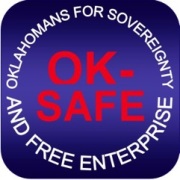OK-SAFE, Inc. – Who needs doctors? If one OK legislator gets his way, nurses will soon be treating patients using a virtual doctor software program and will have no need to consult a physician first.

HB 2266 by Rep. Doug Cox (R-HD 5), reads in part:
2. “Physician-approved protocol” means a protocol such as standing orders that describe the parameters of specified situations under which a registered nurse may act to deliver public health services for a client who is presenting with symptoms or needs addressed in the protocol.
HB 2266 is going to be heard in the Public Health meeting on Tuesday, February 14, 2012 at 3:00 PM in Room 412- C.
The bill goes on to read:
A. Registered nurses are authorized to use physician-approved protocols to provide public health services when performing duties as an employee or as a contractor, as defined in Section 803 of Title 18 of the Oklahoma Statutes, on behalf of the city-county health departments, county health departments, and the State Department of Health.
And:
F. Medical algorithms may be utilized or referenced in the physician-approved protocols to assist in providing the public health services.
Drawing from a knowledge database and using if-then decision trees, medical algorithms compute standardized medical treatments, and produce (spit out) standardized treatment plans.
The Archimedes Model is one such system based on medical algorithms. Pushed by the incestuous Oklahoma Health Information Exchange Trust (or OHIET), and financially linked to OHIET trustee David C. Kendrick, the Archimedes Model is about “quantifying healthcare,” and utilizes mathematical medical algorithms to produce (spit out) standardized treatment recommendations.

The OHIET was created by a stealth amendment inserted into SB 1373 in the last week of May 2010. SB 1373 initially appeared as a single-subject bill dealing with just COPD (Chronic Obstructive Pulmonary Disease); however, open records documents indicate that SB 1373 was identified early on in the session as the intended vehicle for the OHIET Trust language.
The bill’s authors were Senator Brian Crain and Rep. Colby Schwartz, both of whom claim to not remember the OHIET trust language.
[For more information see the OK-SAFE power point entitled Health Care Reform – IT, Security and Privacy Concerns, slides 33-35 about the OHIET and Archimedes.]
Replacing real doctors with “virtual doctors” is a key part of health care reform/reinvention in this country, and serve not only to standardize health care, they are also intended to fill the provider-gap caused by covering all those additional people with health insurance. 
Cost-Benefit Analysis
Data produced by Archimedes can include such quantified information as “Quality-Adjusted Life Years (QALY), and Cost per Quality Adjusted Life Years; it performs a sort of cost-benefit analysis. This decision support tool is intended to be usable not only by doctors, but by nurses, physicians assistants, and policy makers as well. Handy for the state (State), wouldn’t you say?
With HB 2266, it is evident that Rep. Cox (R-HD 5) is aligning the state with the goals of the OHIET Trust members who want to make sure the Archimedes decision support tool is used statewide, as stated in their Operational Plan submitted to the Office of the National Coordinator in late 2011. (See page 13 of the pdf here.)
HB 2266 is going to be heard in the Public Health meeting on Tuesday, February 14, 2012 at 3:00 PM in Room 412- C.
Tuesday happens to be Valentines Day, so Happy Valentines Day, Dr. Cox! Too bad the citizens of HD 5 could not utilize Archimedes themselves to conduct a cost-benefit analysis on you first, and then decide whether you are worth re-electing or not.
Calls Needed
Call Committee Chair Rep. John Enns and Vice-Chair David Derby to ask them to vote NO on this bill.
Enns – Phone: 405-527-7321 Email: john.enns@okhouse.gov
Derby – Phone: 405-527 -7377 Email: david.derby@okhouse.gov
Other committee members include:
| Rep. Cannaday, Ed |
Rep. Cox, Doug |
Rep. Grau, Randy |
| Rep. Hilliard, Wes |
Rep. Holland, Corey |
Rep. McAffrey, Al |
| Rep. McDaniel, Jeannie |
Rep. Nollan, Jadine |
Rep. Peters, Ron |
| Rep. Ritze, Mike |
Rep. Roberts, Sean |
Rep. Schwartz, Colby |
Using software programs to make medical decisions, like Quality-Adjusted Life Years, is part of our managed care future. What a future.
More on Archimedes, MyHealth Access Network, Beacon Communities (federally funded), and David Kendrick:
– Clinical application of Archimedes’ physician and patient decision support tool grows –
“San Francisco, CA and Tulsa, OK – January 19, 2012 – Archimedes Inc., a healthcare modeling company, and MyHealth Access Network, a Beacon Community in Oklahoma, today announced the planned deployment of Archimedes’ Individualized Guidelines and Outcomes (IndiGO) platform, a physician and patient decision support tool. IndiGO could ultimately be used by doctors to work with their patients to inform the health decisions of as many as 810,000 Oklahomans. The MyHealth Access Network deployment marks the third deployment of the tool in the past three months.”
And:
“MyHealth Access Network, a Beacon Community, will deploy IndiGO across its region…“The IndiGO tool will enable our healthcare professionals to sift through the enormous volume of healthcare data on each patient to focus on what is most important,” said David Kendrick, M.D., M.P.H., principle investigator and CEO of MyHealth Access Network.”
Rest of article here.

 Stop Obamacare Penalties Now (rallies in 12 cities planned)
Stop Obamacare Penalties Now (rallies in 12 cities planned)











